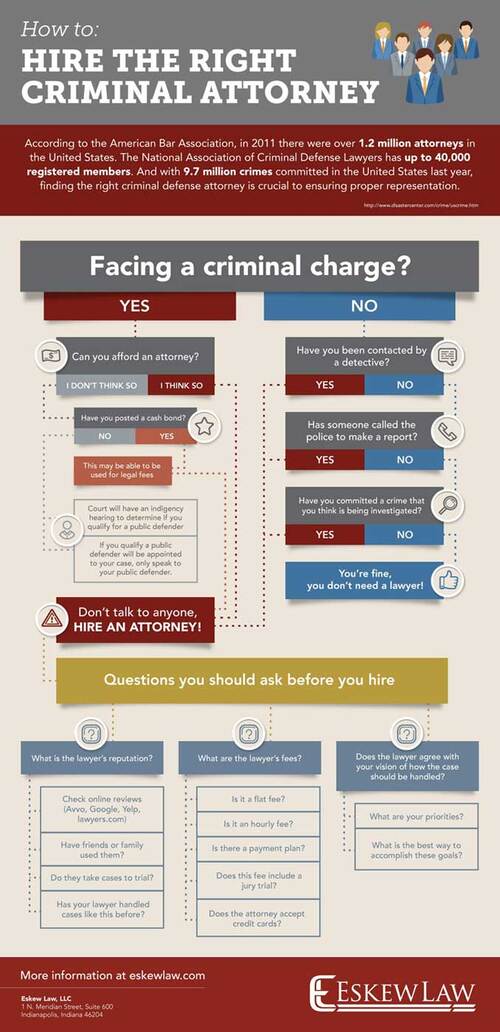Common Misconceptions Concerning Criminal Protection: Debunking Misconceptions
Common Misconceptions Concerning Criminal Protection: Debunking Misconceptions
Blog Article
Short Article Written By-McGuire Porterfield
You have actually most likely heard the misconception that if you're charged with a criminal offense, you need to be guilty, or that staying quiet ways you're hiding something. These widespread ideas not only distort public understanding yet can likewise influence the end results of lawful procedures. It's crucial to peel back the layers of false impression to understand real nature of criminal defense and the rights it protects. What if you recognized that these misconceptions could be dismantling the very structures of justice? Sign up with the discussion and discover how exposing these misconceptions is important for guaranteeing fairness in our lawful system.
Myth: All Offenders Are Guilty
Usually, individuals wrongly think that if someone is charged with a criminal activity, they have to be guilty. You might think that the legal system is foolproof, yet that's much from the truth. Charges can originate from misunderstandings, incorrect identifications, or inadequate evidence. how many criminal defense to bear in mind that in the eyes of the law, you're innocent until proven guilty.
This presumption of innocence is the bedrock of the criminal justice system. It makes certain that the burden of proof lies with the prosecution, not you. They must develop beyond an affordable question that you dedicated the crime. This high basic safeguards individuals from wrongful convictions, guaranteeing that no person is penalized based upon assumptions or weak proof.
Additionally, being billed does not imply the end of the road for you. You have the right to protect on your own in court. This is where a knowledgeable defense lawyer enters play. They can test the prosecution's instance, present counter-evidence, and supporter in your place.
The intricacy of legal procedures usually requires professional navigating to safeguard your legal rights and attain a fair result.
Misconception: Silence Equals Admission
Many believe that if you select to stay quiet when charged of a criminal offense, you're basically admitting guilt. Nonetheless, this couldn't be even more from the truth. Your right to continue to be silent is secured under the Fifth Change to prevent self-incrimination. find out here 's a lawful protect, not a sign of shame.
When you're silent, you're really exercising a fundamental right. This prevents you from saying something that may unintentionally hurt your defense. Remember, in the warm of the minute, it's very easy to obtain confused or talk erroneously. Law enforcement can translate your words in means you really did not plan.
By remaining quiet, you provide your attorney the best possibility to safeguard you successfully, without the problem of misinterpreted statements.
Furthermore, it's the prosecution's work to show you're guilty past a practical question. Your silence can't be utilized as evidence of shame. Actually, jurors are instructed not to interpret silence as an admission of shame.
Misconception: Public Protectors Are Inadequate
The misconception that public defenders are inefficient lingers, yet it's important to comprehend their important role in the justice system. Several think that because public protectors are commonly strained with cases, they can't provide high quality defense. However, this ignores the depth of their commitment and expertise.
Public defenders are totally licensed attorneys who've selected to concentrate on criminal law. They're as qualified as personal lawyers and typically more experienced in trial work due to the volume of instances they manage. You might think they're much less motivated because they don't pick their clients, however actually, they're deeply committed to the perfects of justice and equal rights.
It is essential to bear in mind that all attorneys, whether public or private, face difficulties and restrictions. Public defenders often work with less resources and under even more pressure. Yet, they continually demonstrate strength and creative thinking in their defense approaches.
Their function isn't just a job; it's a mission to ensure that everyone, despite earnings, gets a reasonable trial.
Conclusion
You may assume if someone's charged, they have to be guilty, yet that's not how our system works. Choosing to remain quiet doesn't indicate you're admitting anything; it's just wise self-defense. And don't underestimate public protectors; they're devoted professionals committed to justice. your input here in mind, everybody deserves a fair trial and experienced depiction-- these are essential rights. Let's drop these misconceptions and see the lawful system wherefore it really is: a location where justice is looked for, not just punishment dispensed.
